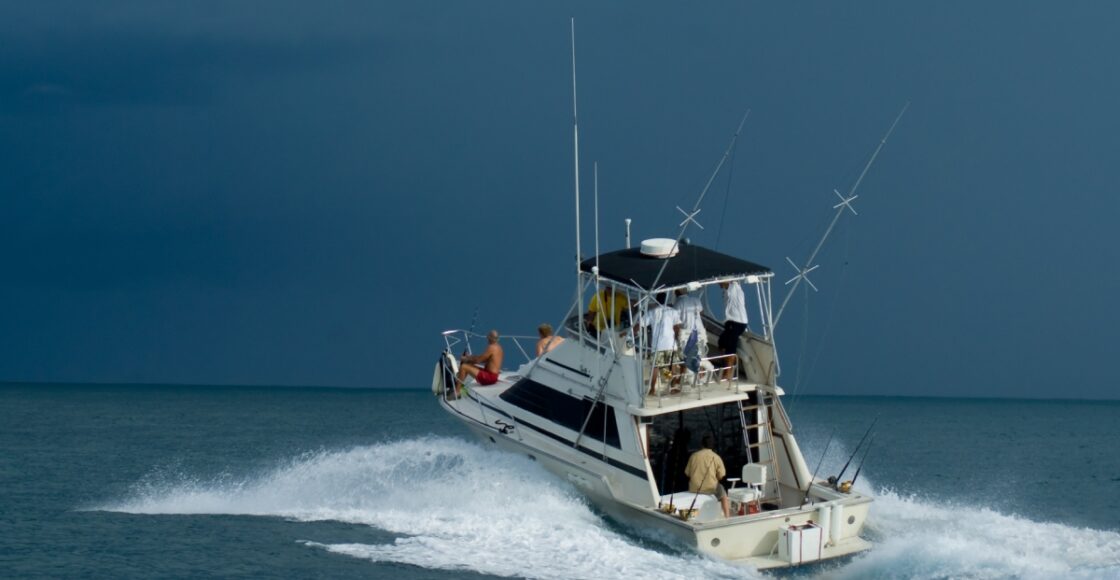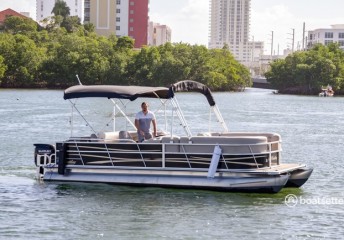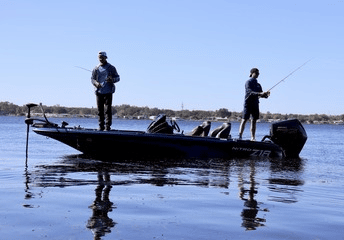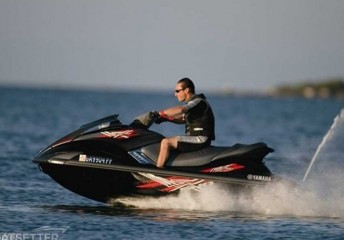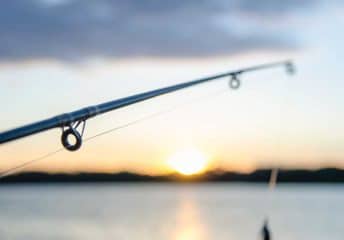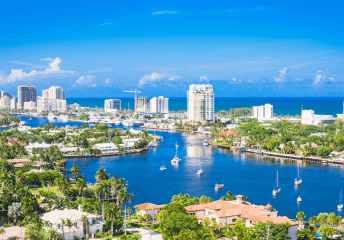Fishing in the Rain: Tips for Success
Last Updated on October 10, 2024 by Boatsetter Team
The fish are already wet, but is fishing in the rain any better or worse than fishing on sunny days?
Whether you’re into inshore fishing along the coast, chasing pelagic beasts while deep sea fishing, or you enjoy freshwater fishing for largemouth bass, every fishing trip is at the mercy of the weather. Wind can make fishing tough or even impossible sometimes, but what about rain? Do fish bite any better or any worse when it’s raining? How could it possibly make a difference since the fish are always wet in the first place?
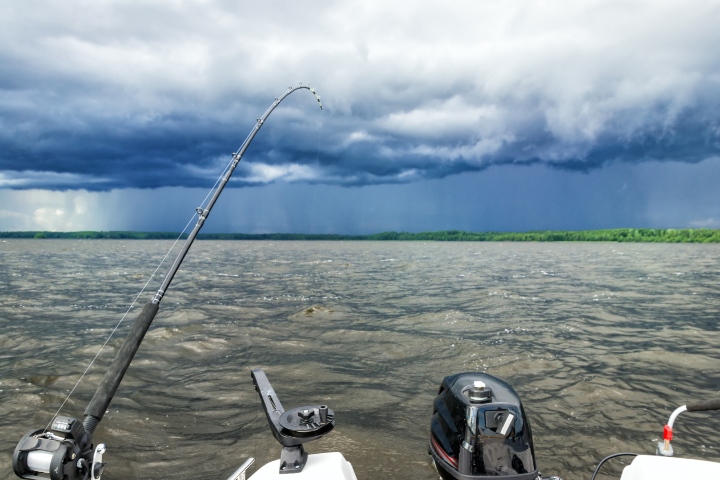
How Rain Affects Fishing
While there are plenty of theories different anglers hold, we really can’t say for sure if rain in and of itself affects the bite one single bit. But there are a number of factors coming into play that are related to rainy days, which we know do influence the fish’s behavior. The first is the changes in barometric pressure which often accompany rainy conditions. Another is light levels, which will commonly be lower on rainy days thanks to all the cloud cover. Then there are factors like ambient underwater noise levels, changing water temperatures, and changing oxygen levels, all of which can trigger different levels of fish activity.
How Barometric Pressure Changes Affect Fishing
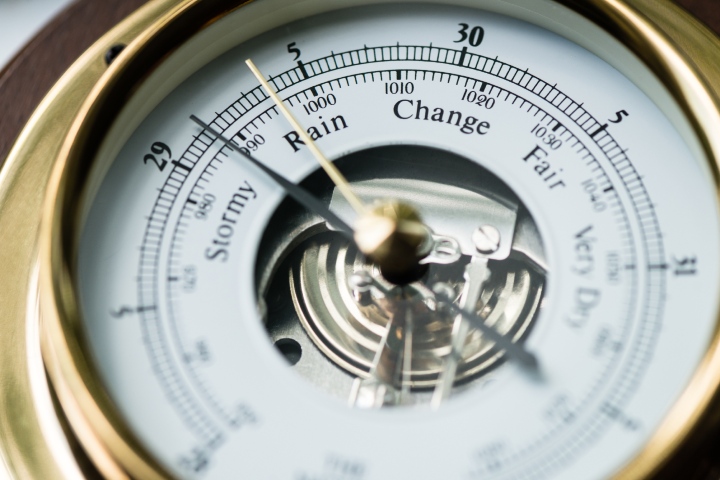
Changes in the barometer can have dramatic impacts on the fish, to the extent that monitoring barometric pressure comes up as one of our top Fishing Tips to Bring you More Success. That said, barometric pressure seems to affect different species in different ways at different times and there are few blanket statements one can make that explain the phenomenon on the whole. In many cases a falling barometer will boost the bite, and in many cases a steady barometric pressure that changes little for several days in a row seems best. And, as a general rule of thumb a rapidly rising barometer slows down the action. However, if you fish often enough sooner or later you’ll have an experience that goes against these generalizations.
How Cloud Cover Affects Fishing
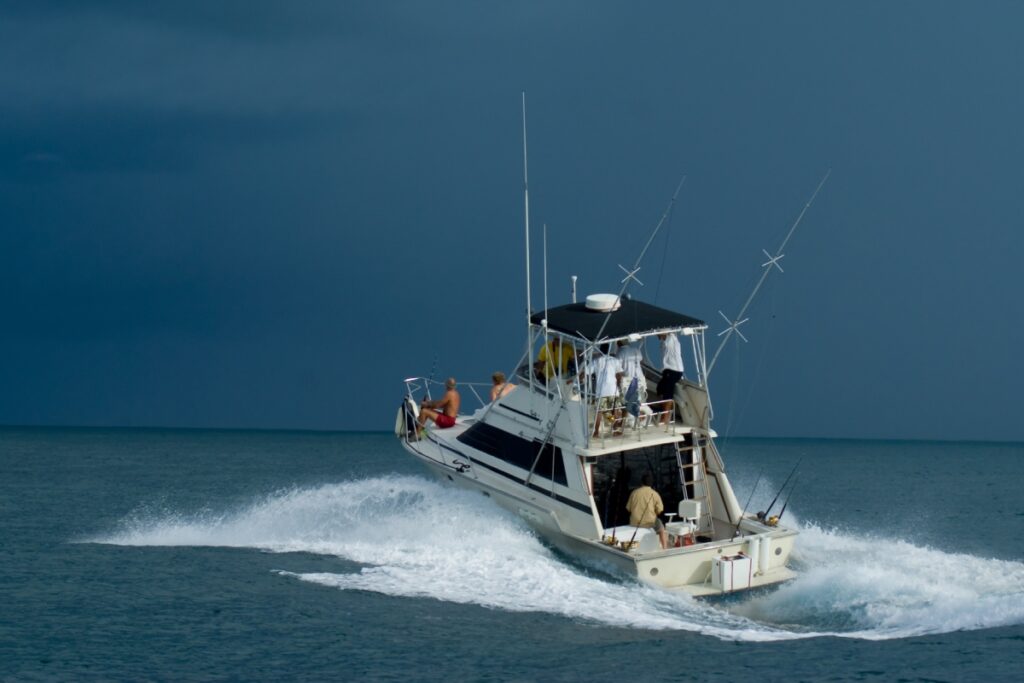
The heavy cloud cover that often accompanies rainy days can quite often prove beneficial to the anglers among us. Many species in many different waterways will feed hard in low light conditions, and this can range across freshwater, saltwater, and brackish water fisheries across the board.
Not only will heavy clouds and low light levels cause a spike in the bite, they can also change the type of angling you’ll enjoy. Topwater action, for example, is generally best at daybreak and at sunset. On very cloudy days, however, the topwater bite can be excellent from dawn to dusk as the fish may continue feeding right at the surface. Another example can be found in the effectiveness of different lures; on bright, sunny days flashy lures like shiny metal spoons are often best, but on cloudy days lures with a matte finish commonly prove to be a top pick. And lures that target the fish’s senses beyond just sight, like scented lures and those with rattle chambers that send out audible vibrations, can give your success rate a boost.
Additional Factors Affecting Fishing in the Rain
Some additional rain-generated factors can have a lesser but still significant effect on the fishing. The sound of rainfall that’s audible to we humans is certainly different than what the fish hear, but lots of rain drip-dropping on the surface of the water does create background noise underwater. This may have some effect on how predator fish hunt, but we humans can’t say for sure. We do know, however, that having a steady ambient background noise can help us sneak up on those predators without being detected.
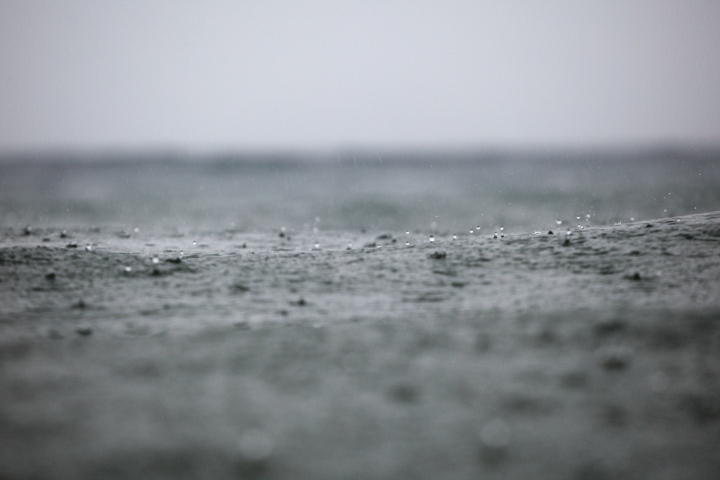
Those drips and drops also churn the water’s surface a bit, helping to raise oxygen levels. In many waterways, this won’t have an impact significant enough to change the fish’s behavior, but in low-oxygen environments, it can trigger an increase in some species’ activity levels.
Rainfall, especially heavy rainfall, can also cause significant temperature changes in some waterways. Generally speaking, the impact will be most significant in contained bodies of water, but rain combined with clouds can lower water temperatures by several degrees through the course of the day. In the cool months of the year this could have an adverse impact but during the summer months when the water in many areas can grow too warm for the fish’s comfort, the cooling affect can result in improved fishing.
So: what happens when we consider all of these factors together? Generally speaking, rain is a net positive for anglers and fishing in the rain can be a lot better than fishing on sunny days. The downside, of course, is that you’ll get wet. You may get cold, too, and there’s a good chance that wind and waves will accompany the rain. So, the next time rainy weather is in the forecast, don’t cancel that fishing trip—but don’t forget your foul weather gear!
About us
Boatsetter is the leading online marketplace for boat rentals and on-water experiences. Download the Boatsetter app (App Store | Google Play) and follow us on Instagram.
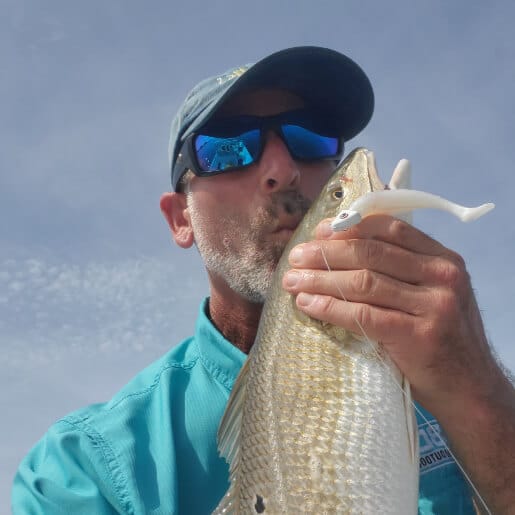
With over three decades of experience in marine journalism, Lenny Rudow has contributed to dozens of boating and fishing publications and websites ranging from BoatU.S. Magazine to BDOutdoors.com. Rudow is currently the Angler in Chief at Rudow’s FishTalk, he is a past president of Boating Writers International (BWI), a graduate of the Westlawn School of Yacht Design, and has won numerous BWI and OWAA writing awards.
